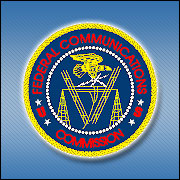
The U.S. Federal Communications Communication (FCC) reportedly intends to investigate the Bay Area Rapid Transit system (BART) over the San Francisco-area public transportation system’s recent shutdown of cellphone service at four stations in the face of a public protest.
BART cut cell phone services for several hours on Aug. 11 when a public demonstration began moving from station to station. The demonstrators were protesting the shooting of homeless man Charles Hill by BART police last month.
The move cut off cellphone service, including emergency calls, and outraged civil libertarians, who pointed out that it endangered public safety and stifled free speech.
It also sparked more protests, as well as an attack by hacker community Anonymous, which targeted a BART website.
It’s possible that the cellular service shutdown contravened provisions of the Communications Act of 1934, which expressly prohibits local and state law enforcement agencies from jamming transmissions to thwart criminal and terrorist acts.
FCC spokesperson Neil Grace didn’t respond to requests for comment by press time.
All Your Speech Are Belong to Us
BART gave different explanations as to how it shut down cellular communications.
At first, it said it had approached wireless carriers directly and asked them to turn off service, but later, BART said its staff or contractors shut down power to the nodes and alerted the cell carriers.
BART says it owns and controls the underground cellphone network, which runs from Balboa Park Station through the Transbay Tube. It indicated that it shut down the service to essentially prevent a repeat of what had happened recently in England, where mobs used mobile communications to coordinate their riots.
Further, BART claimed that the shutdown only affected its stations and that cellphone service was not disrupted outside its stations. It also stated that intercoms and courtesy phones in areas where cellular service had been shut off continued to work.
BART spokesman Linton Johnson reportedly said that riders do not have the right to free speech inside the fare gates, and he indicated that cellular service might be cut again.
“BART should focus on keeping the trains running and the passengers safe,” Rebecca Jeschke, a spokesperson for the Electronic Frontier Foundation, told TechNewsWorld. “It did not need to cut out phone service in order to do this.”
While the cellular service shutdown might have stopped a protest, it cut off “a lot of other communication as well,” Jeschke pointed out.
BART did not respond to requests for comment by press time.
Fallout From the Shutdown
BART’s cellular service shutdown prompted hacker community Anonymous to threaten retaliatory action.
Earlier this week, it made good on the threat, hacking into BART’s servers. However, what it did next drew a degree of backlash — it published the personal information of about 2,000 BART users in the database.
Did Anonymous shoot itself in foot with that move?
“This is collateral damage,” Todd Feinman, CEO of Identity Finder, which discovered details about the personal information shortly after the Anonymous hack, told TechNewsWorld.
“Anonymous doesn’t care who they hurt, they just want to get press,” Feinman said. “They would’ve shot themselves in the foot if they hadn’t got any press.”
Anonymous also called for a peaceful protest against BART on Monday.
That protest was well attended and apparently went off without any reports of serious trouble, possibly because of the heavy police presence at the site. Video of this protest has been posted here.
The Cause of the Unrest
The protests and the hacking of BART’s website were sparked by the July shooting of homeless man Charles Hill at the BART Civic Center station. Hill was reportedly shot while wielding a knife, though witnesses claimed he could have been subdued by less lethal means.
The ensuing protests have caused the issue to grow into one involving free speech.
“The real question is, do we want government agencies to be able to shut down wide swaths of phone service on claims of a rumor that there might be a protest?” the EFF’s Jeschke asked.
“I think it’s pretty clear the answer to that is no,” Jeschke said.





















































